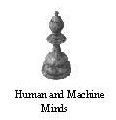![[Graphic from Newell's book, Unified Theories of Cognition (p.161/University Archives)]](soar.jpg)
![[Graphic from Newell's book, Unified Theories of Cognition (p.161/University Archives)]](soar.jpg)
Until his death in 1992, Allen Newell worked on advanced applications built upon CMU’s artificial intelligence achievements. These included integrated intelligent systems and computer visualization programs for the US department of Defense. His largest-scale defense project was the ZOG human-computer interface, used to control the aircraft carrier USS Carl Vinson, (1980-1984).
Newell’s most influential artificial intelligence project was Soar. (State, operator, and result theory). The Soar Project combined 30 years of research on AI and human cognition by Newell and former students John Laird and Paul Rosenbloom. Soar’s programming and problem solving concepts had been extensively researched at CMU.
Complex problem solving was performed through problem spaces, where the present position (state) was acted on by means (an operator) that reached a goal (result). Subgoals were built in to let Soar reason its way around data that blocked its progress. Production systems provided memory responses to new data - if the data met condition A, then action B would be taken.
Soar showed that Newell had become a problem solver whose thinking had advanced from study of cognitive psychology to the creation of a multi-application artificial intelligence program, which he described as "GPS done right." Then Newell’s thinking turned full circle. He developed a complete theory of human cognition based on the program, as had been attempted with Logic Theorist.
Newell felt the time had come to propose that computer scientists and cognitive psychologists work toward a unified theory of human cognition. He presented Soar as an example theory, for debate, in his 1987 William Jams Lectures at Harvard University. From these lectures Newell crafted his most enduring book, Unified Theories of Cognition. From Newell’s work grew an inter-university Soar community, applying the Soar program basics to expert systems and robotics.






May 2001 -- http://www.library.cmu.edu/Libraries/UnivArchives/MindmodelsExhibit/index.html
Gabrielle V. Michalek, Head of Digital Library Initiatives